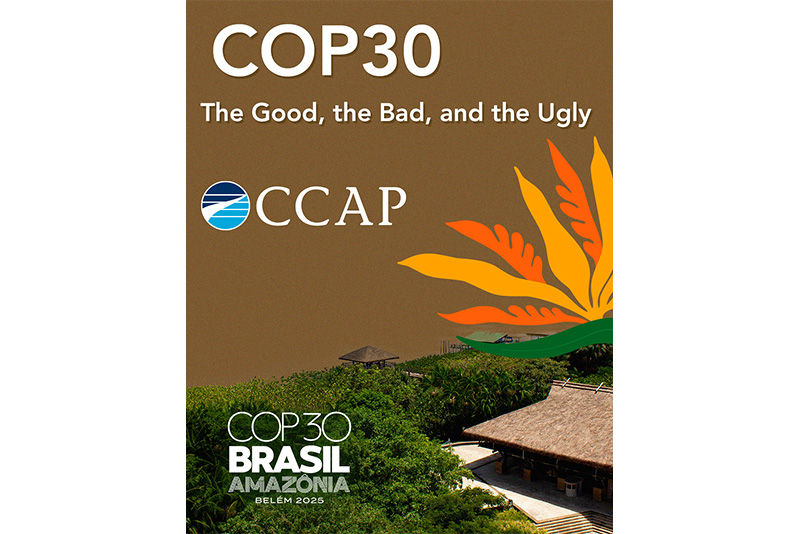COP25: Another Year, Another Missed Opportunity on Carbon Markets
- Stacey Davis
- Dec 19, 2019
- 3 min read
Updated: Jan 28, 2021

After more than 2 weeks, negotiators at COP25 were unable to advance robust rules for carbon markets that meet the Paris Agreement goal of limiting temperature increases to well below 2°C. While many negotiators argued for a path forward premised on strong ambition, in the end, they were unable to win consensus.
In the final days, more than 30 countries signed on to minimum standards elaborated at the pre-COP in San Jose, Costa Rica. Among other outputs, these San Jose Principles aim to ensure that cooperative approaches and projects implemented under Article 6: ensure environmental integrity; enable the highest possible mitigation ambition; support progression and transformation; and deliver an overall mitigation in global emissions.
Specific to the implementation of Article 6.2, progressive countries supported measures to protect the ambition and integrity of international transfers, including:
universal use of corresponding adjustments to prevent counting emissions reductions more than once;
robust methodologies to effect those corresponding adjustments; and
provisions for transparently tracking international transfers against the goals and pathways for meeting Nationally Determined Contributions.
Under Article 6.4, progressive countries argued for disallowing use of all pre-2020 emission reduction units—including Kyoto units and allowances—after 2020. They also argued for use of corresponding adjustments to address double counting.
Unfortunately, other countries sought to hold back progress, arguing 1) that emissions reductions under Article 6.4 could be used by the buyer country without the host country needing to make a corresponding adjustment; and 2) that Kyoto Protocol units should be allowed well into the next decade.
Allowing double counting of Article 6.4 emissions reductions would mean that governments are taking credit on paper for more emissions reductions than actually occurred, short-changing the atmosphere and progress towards meeting international climate goals. To the extent that old Kyoto-era credits are used, this would mean that new post-2020 emissions reductions are not taking place. Even worse, some of the old Kyoto credits have been assessed as not being “additional” to what would have happened under business-as-usual conditions. Where this is the case, replacing new post-2020 emissions reductions with questionable Kyoto units is especially problematic.
Outlier positions like these made it impossible to reach consensus on a robust outcome; accordingly, negotiators again judged that no rules are better than “bad” rules.
As a result, the international community is left just about where we were at the end of last year. Absent rules and guidelines, transfers between countries under Article 6.2 can still move forward. While some countries may be cautious about advancing new cooperative approaches without formal guidelines, Switzerland has already indicated they would continue developing and implementing pilot programs, abiding by the San Jose Principles. Others countries are also expected to continue advancing pilot and “virtual pilot” projects under Article 6.2. However, without rules to create the centralized mechanism required for Article 6.4, international transfers requiring this mechanism cannot advance. Further, without clarity, projects and programs of activities created under the Kyoto Protocol’s flexibility mechanisms remain in limbo.
While the international community again missed an opportunity to establish robust rules and guidelines that would spur a range of public and private-sector approaches in reducing emissions, government-to-government cooperation is still possible. Progressive countries are already leading the way, exploring how cooperation can be used to reduce emissions in a way that allows for higher ambition by both Parties. This includes buyer countries like Switzerland and Sweden, as well as prospective host countries like Chile, Colombia and Peru, who have signed the San Jose principles and/or have otherwise indicated their intent to advance pilots with high integrity.
In fact, countries have already started to showcase how Article 6 can support transformative outcomes. One case in point: the Sweden-Chile virtual pilot on energy sector transformation. Virtual pilots like these can help pave the way for a successful COP26 next year in Glasgow.





شيخ روحاني
رقم شيخ روحاني
الشيخ الروحاني
الشيخ الروحاني
شيخ روحاني سعودي
رقم شيخ روحاني
شيخ روحاني مضمون
Berlinintim
Berlin Intim
جلب الحبيب
https://www.eljnoub.com/
https://hurenberlin.com/